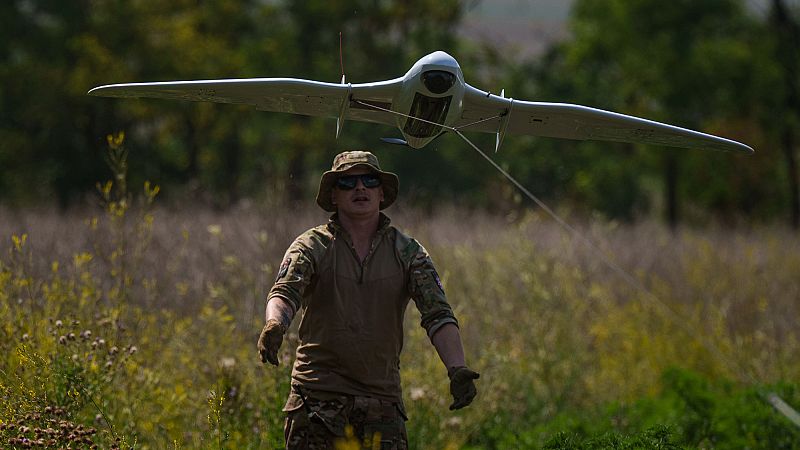Hungary sanctions Ukrainian drone commander for bombing oil pipeline in Russia

Hungary has imposed a travel ban on the commander of Ukraine's Unmanned Systems Forces after three consecutive attacks on the Druzhba oil pipeline on Russian territory.
The attacks halted oil imports to Hungary and to Slovakia for days. The sanction was announced by Hungarian Foreign Minister Péter Szijjártó, who said the country considered the pipeline attacks a threat to national sovereignty.
"We have decided to ban the commander of the military unit that carried out the recent extremely serious attacks on the Friendship oil pipeline from Hungary and from the entire Schengen area," Szijjártó said.
"This Ukrainian citizen will not be allowed to enter Hungary or the Schengen area in the coming years," the minister added.
Diplomatic spat between Hungary and Ukraine deepens
Ukraine's Foreign Minister, Andrii Sybiha, replied to his Hungarian counterpart on X, denouncing Szijjártó's statement as shameless and announcing countermeasures.
"Peter, if the Russian pipeline is more important to you than the Ukrainian children killed by Russia this morning, this is a moral decay. Hungary is on the wrong side of history. We'll take mirror action," the minister said.
Although the original press release did not name the targeted person, the political advisor of Hungary's prime minister, Balázs Orbán, confirmed to Hungarian media that the statement related to Robert Brovdi, a commander of Ukraine's drone unit.
Brovdi was appointed to lead the key unit in June and admitted earlier on his personal Facebook account that his units were behind the attacks on the pipelines.
He also posted a video on his Telegram channel of the explosions after the recent bombings on Thursday evening.
Brovdi, whose call name is Magyar, meaning Hungarian, added a like, saying: "Russians go home."
Ukraine did not officially admit to hitting the pipeline infrastructure on Russian soil. The travel ban on Brovdi also means he cannot enter the Schengen Zone— therefore, he cannot join key NATO meetings on European soil.
In July, Brovdi participated in a LANDEURO meeting, an international meeting and exhibition of land forces at a NATO military base at Wiesbaden in Germany.
Last Friday, Hungary and Slovakia jointly sent a letter to the European Commission, demanding action against Ukraine in response to the attacks on the Druzhba pipeline. Both countries argued that Ukraine posed a threat to their energy supplies.
In a reply, the Commission argued that since strategic oil reserves in Slovakia and Hungary are intact, there is no risk to the security of supply in the countries.
Hungary must justify the Schengen entry ban
According to the Schengen Code, which regulates the passport-free travel zone, each member state can ban individuals from entering its territory in case they pose a threat to national security.
To do this, this country needs to fulfil certain conditions that justify the decision. This decision can also be challenged in court. Once the entry ban is in place, the details are uploaded into the Schengen Information System, and other Schengen countries need to apply this ban automatically.
They can also give certain exceptions, if they consider humanitarian reasons or national interests. This means in practice that if Robert Provdi wishes to enter a Schengen Country, the information system will send a notification that he is a subject of an entry ban. But the local authorities can still give him permission to enter.
Today

